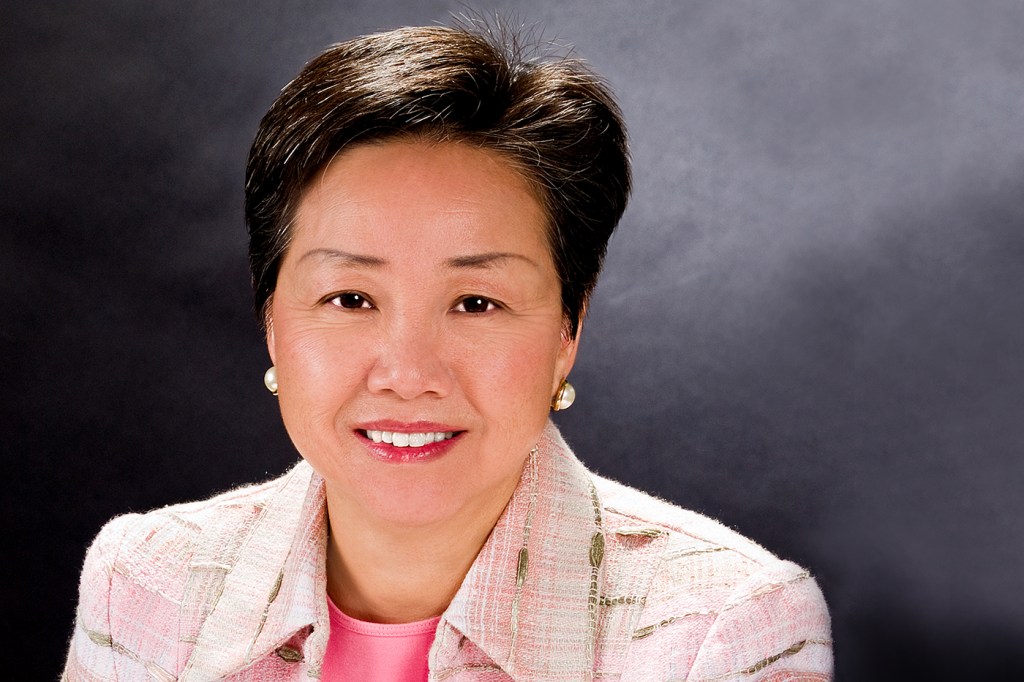A professor urged Amy Wong Mok to ask questions. Decades later, she’s still at it.

She had been raised in Hong Kong to listen quietly, to show respect by deference. Then Amy Wong Mok came to Boston.
Mok was taking an introductory course in human services, her undergraduate major at Northeastern, when her professor, Barbara Schram, urged her in a private meeting to participate in class discussions. For many students this may have served as a mild rebuke; for Mok it was the revelation that has defined the rest of her life.
“That is not our practice in Hong Kong,” said Mok, founder and chief executive officer of the Asian American Cultural Center in Austin, Texas. “We were taught to just listen and put down notes. Don’t ask questions, because when you ask a question you’re basically challenging the teachers.”
The story of Mok’s unpredictable life can be told in three steps: (1) her traditional Chinese upbringing; (2) her introduction to the American point of view; and (3) her ongoing desire to marry the two worlds, to the common benefit of both sides.
“It really is because of Dr. Barbara Schram at Northeastern,” Mok said. “She was the turning point.”
I’m not the brightest, I’m not the most able. But I’m the one who is willing. And I’m also not afraid. If I don’t know, I’m determined to know. I will find out.
Amy Wong Mok, Northeastern graduate
After leaving Northeastern with a master’s in community and mental health counseling, Mok worked as a psychotherapist for a health center in Boston’s Chinatown. The case that stuck with her was of a woman who had been raped in a car by her driving instructor. Mok recognized that her own reaction had been insufficient.
“I was not well-prepared to deal with the date-rape dynamic,” Mok said. “In the back of my mind, I had that blaming-the-victim thinking. I helped her to move forward, but still I didn’t feel good about this case.”
She would set out to do better. When Mok moved to Austin in 1983 with her husband, Aloysius K. Mok, a professor of computer science at the University of Texas, she volunteered at a rape crisis center and eventually became its director of education, training more than 100 volunteers annually. It was while working at the center that she became aware of the needs of the Asian community in Texas. So many people needed someone to advise or speak up for them.
The Asian American Cultural Center, which Mok founded in 2000, serves as a bridge between the Asian and American communities of Austin. It offers pre-school and after-school programs, assistance for working mothers, and classes of all kinds. Mok’s newest goal is to develop senior housing.
“I’m not the brightest, I’m not the most able,” she said. “But I’m the one who is willing. And I’m also not afraid. If I don’t know, I’m determined to know. I will find out.”
Mok’s co-ops at Northeastern—working in special education and with runaway children—helped her to realize the potential within herself that Schram had urged her to explore.
“Nobody has asked me ever about how you feel, or what do you want,” she said of her childhood in Hong Kong. “I know what my father wants me to be, I know what my mother wants, I know what my teachers want. But we very seldom discuss our passion, our desire, what do we see in our future. What would make me happy. What gives me joy.”
As she looked back upon her journey from Hong Kong to Texas, Mok recognized that she has been trying to guide others as she was guided at Northeastern. “It is almost like I’m doing what the professors were doing,” she said with laughter for this latest revelation. “Pass it on.”






